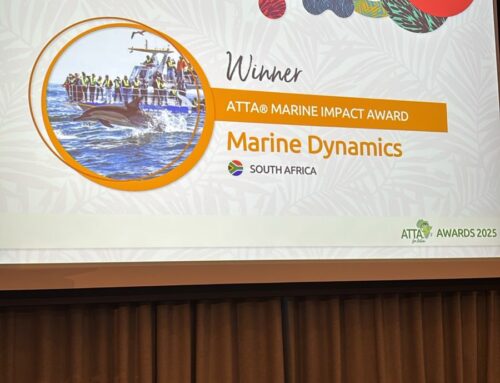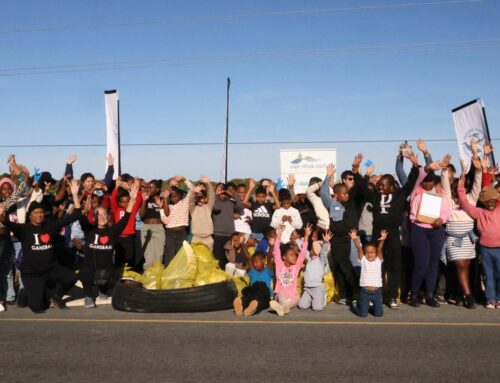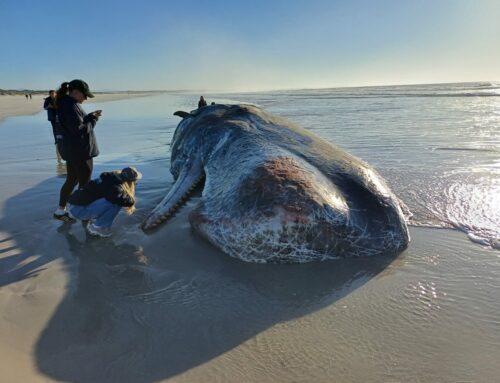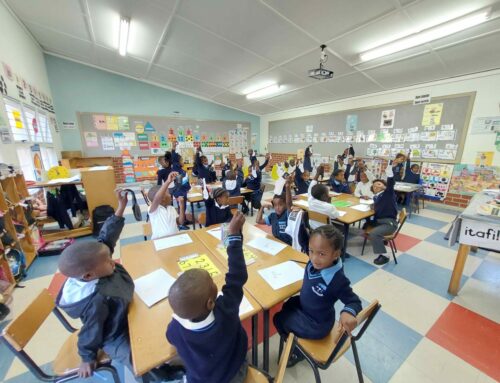International Coastal Clean-up Day on September 17 is a promise to bring cleanliness and purity to nature as a whole. The day was started as a way to raise awareness about the growing pollution on various beaches of the world. Population growth and capitalism are just two of the main factors that have led to severely high levels of pollution in the environment, particularly in the oceans that make up over 70% of our planet. Water has a cyclical nature, which means that anything we are putting into our oceans and other water bodies will come back to us sooner or later. Plastic does not decompose over a long period, and only disintegrates, minute plastic particles are already showing up in our food and water. If these trends continue, it won’t be long before we face disastrous outcomes for our environment.
The idea of the clean-up is simple: Go to a local beach with a garbage bag and start picking up trash in order to reduce the amount that would be swept into the ocean by water or wind. Cleaning up the beaches isn’t the only aim of the International Coastal Clean-up Day. Another important goal is to document and study the type of trash collected during the clean-up. Documentation included studying the trash’s material, where it could have come from, how long it would take to disintegrate, and what impact it would have on the ocean and the species living in it. Once everything is identified and documented thoroughly, the governments are informed about the findings. In order to prevent further damage, efforts are started at national and international levels. Industries also face policies that would stop them from either producing such items or dumping them into the oceans.
The Dyer Island Conservation Trust (DICT) is committed to reducing marine pollution through regular beach clean ups, fishing line bins, and storm drain catchment nets. The main goal for the Trust is to mitigate the impact on marine animals. The Trust has partnered with the Overstrand Municipality for these projects and for International Coastal Clean-up Day, a joint clean-up was arranged at Gansbaai Harbour. With everyone kitted out with gloves, the DICT team was pleased at the turn out. Attendees included Marine Dynamics Academy, Gansbaai Academia’s Marine Sciences learners, CapeNature; WESGRO/Cape Overberg District Municipality , Councillor Riana de Coning and her team; staff of ecotourism companies Marine Dynamics and Dyer Island Cruises; the African Penguin & Seabird Sanctuary; Masakhane Primary School; Gansbaai Primêr; the Department of Fisheries Forestry’s and Environment Coastal Monitor; and DICT’s Environmental Education Programme known as DEEP; as well as other dedicated supporters.
This is what Pinkey Ngewu of the Dyer Island Conservation Trust has to say; “this day is a reminder of responsible living. Every action has a reaction. What we do today will impact our tomorrow. Therefore, be careful about throwing away your trash. Choose environmentally friendly products. These minor changes in your life may seem inconsequential when looking at the big picture, but trust us, even if one of us decides to take the first step, it’s going to have a positive outcome sooner or later.”
With over 270 volunteers we covered 1.5 kms, and collected a total of 766.30 kgs of waste filling 148 bags, plus some large items. Everyone who attended were gifted a recycled stationary set and lunch packs sponsored by the Western Cape Government Environmental Affairs and Development Planning. A special thanks to PlasticsǀSA for sponsoring tools for this clean-up.
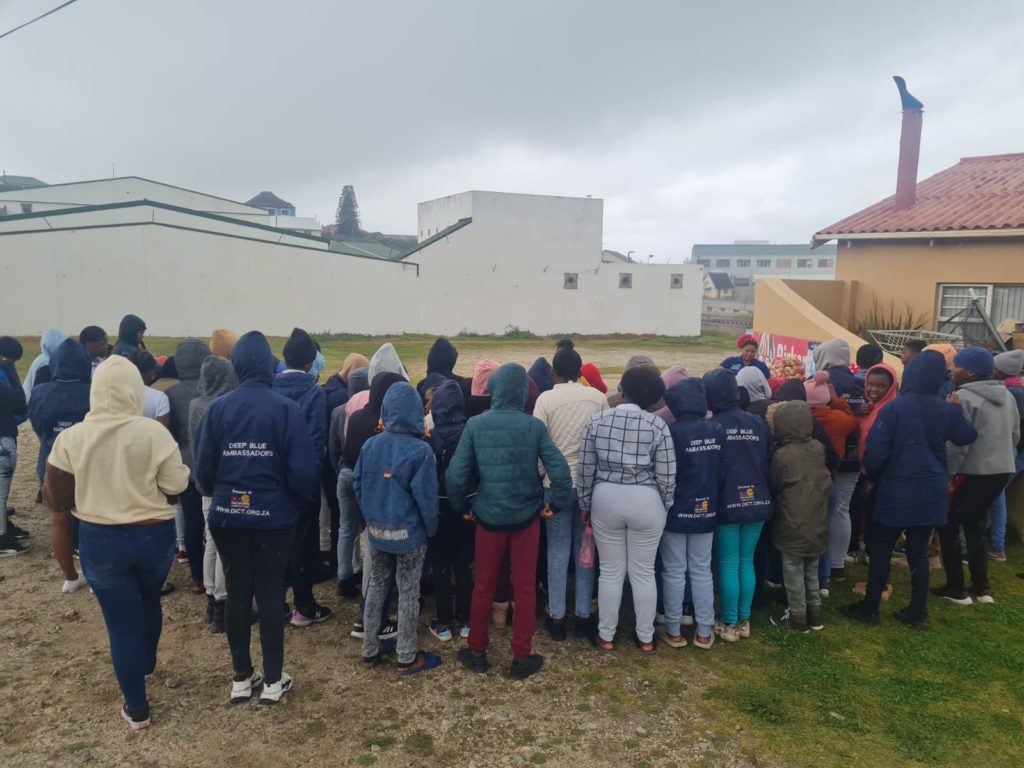
Briefing the audience
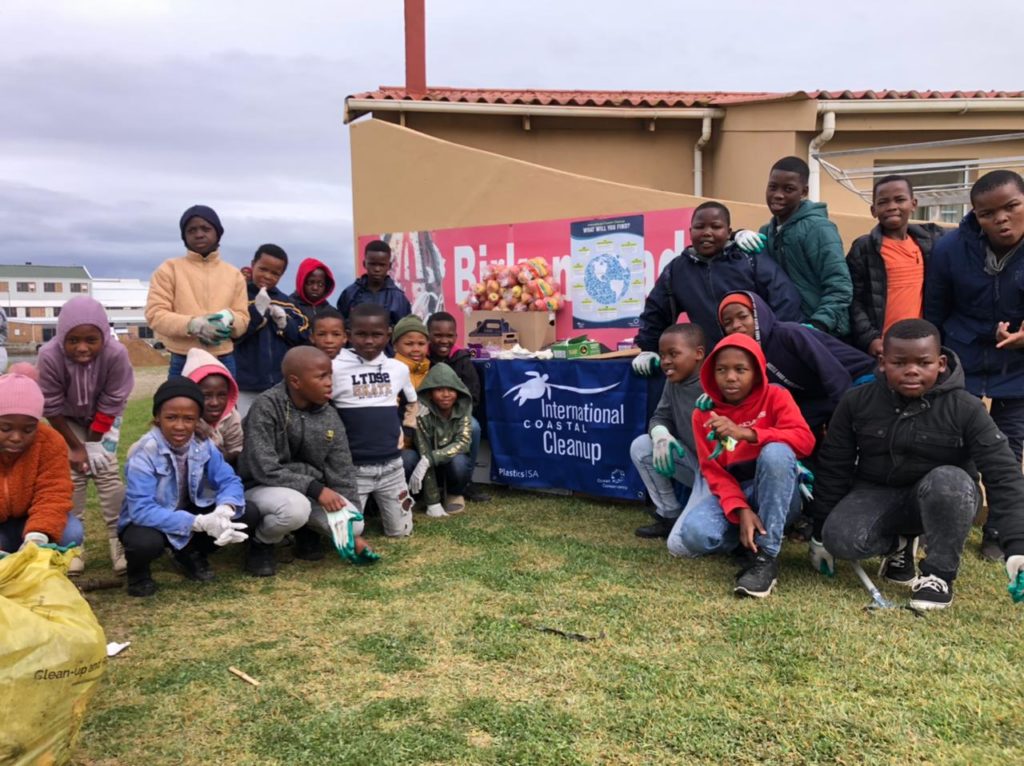
Getting ready
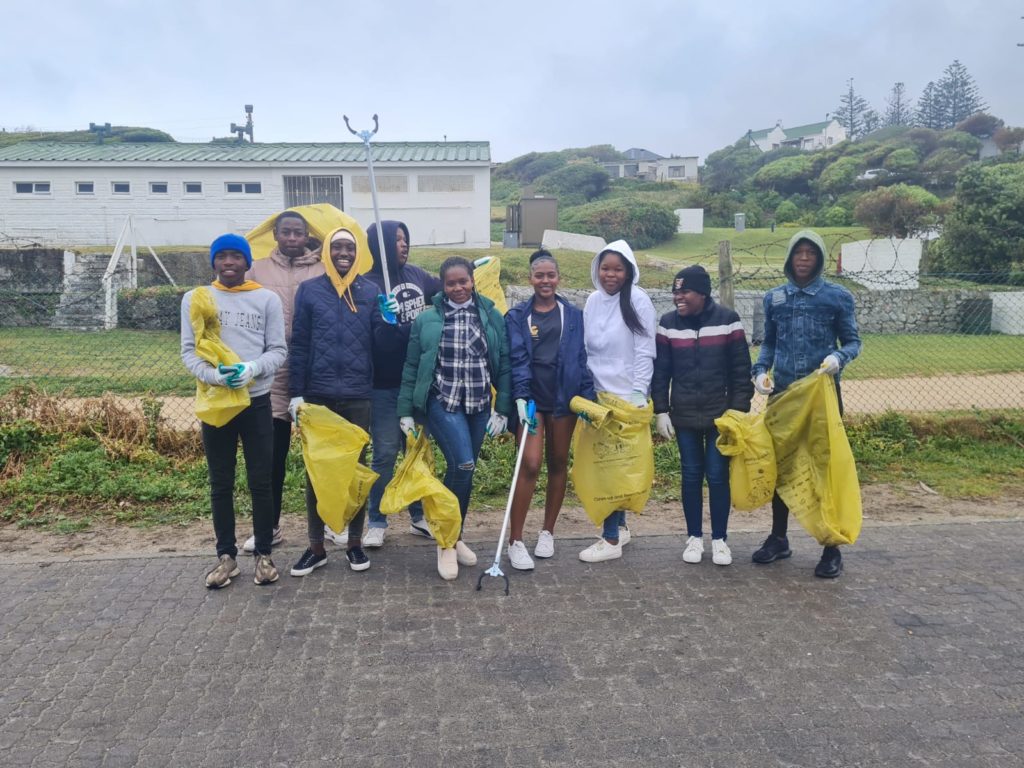
Gansbaai Academia learners
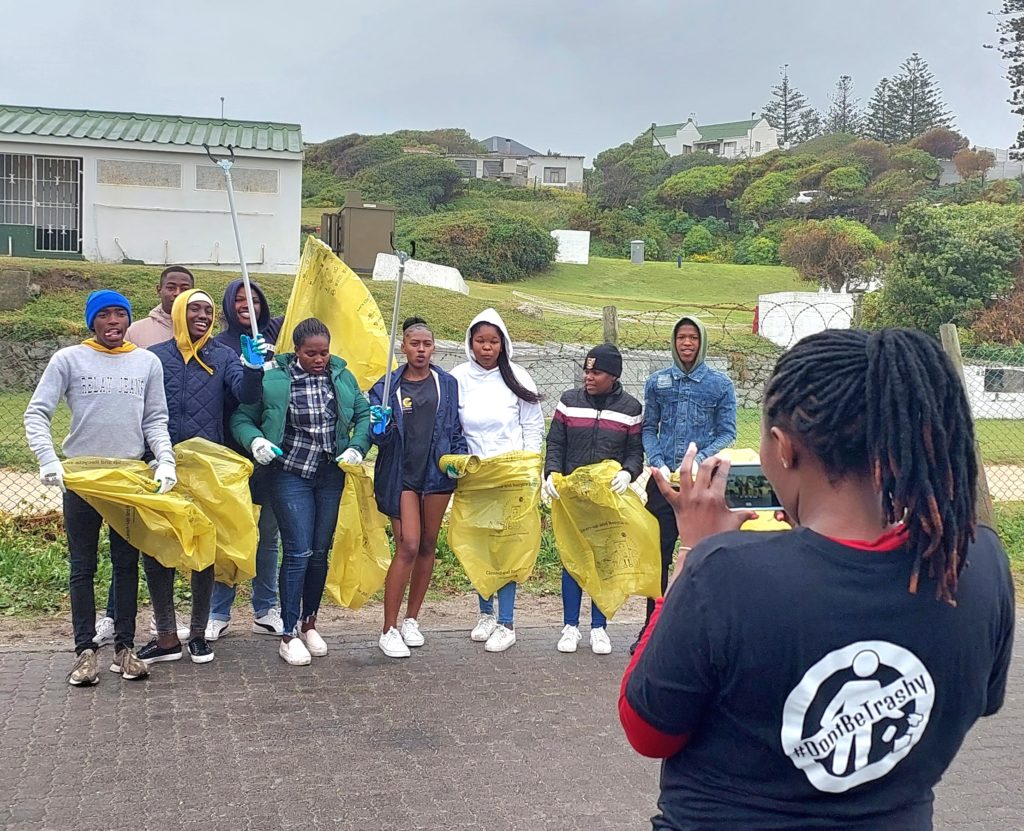
Let’s do it for the ocean #DontBeTrashy
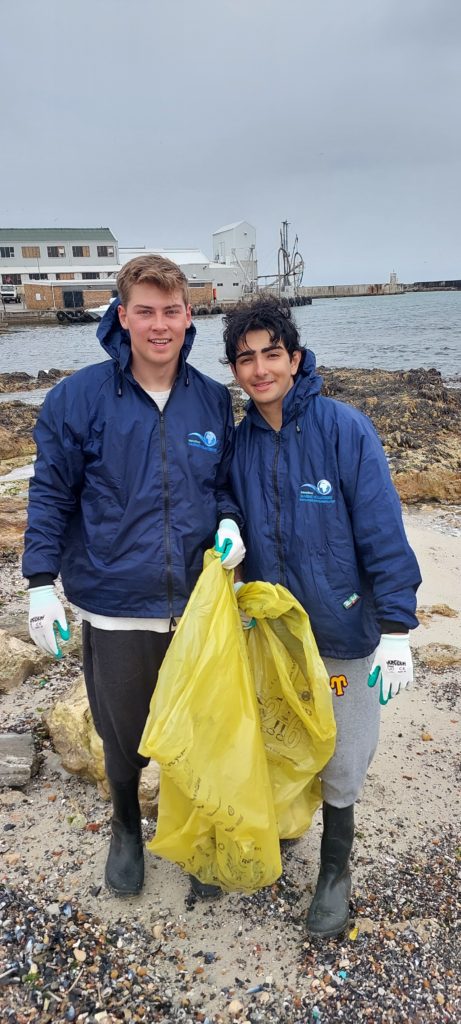
Marine Dynamics Academy students braved the weather and joined the movement
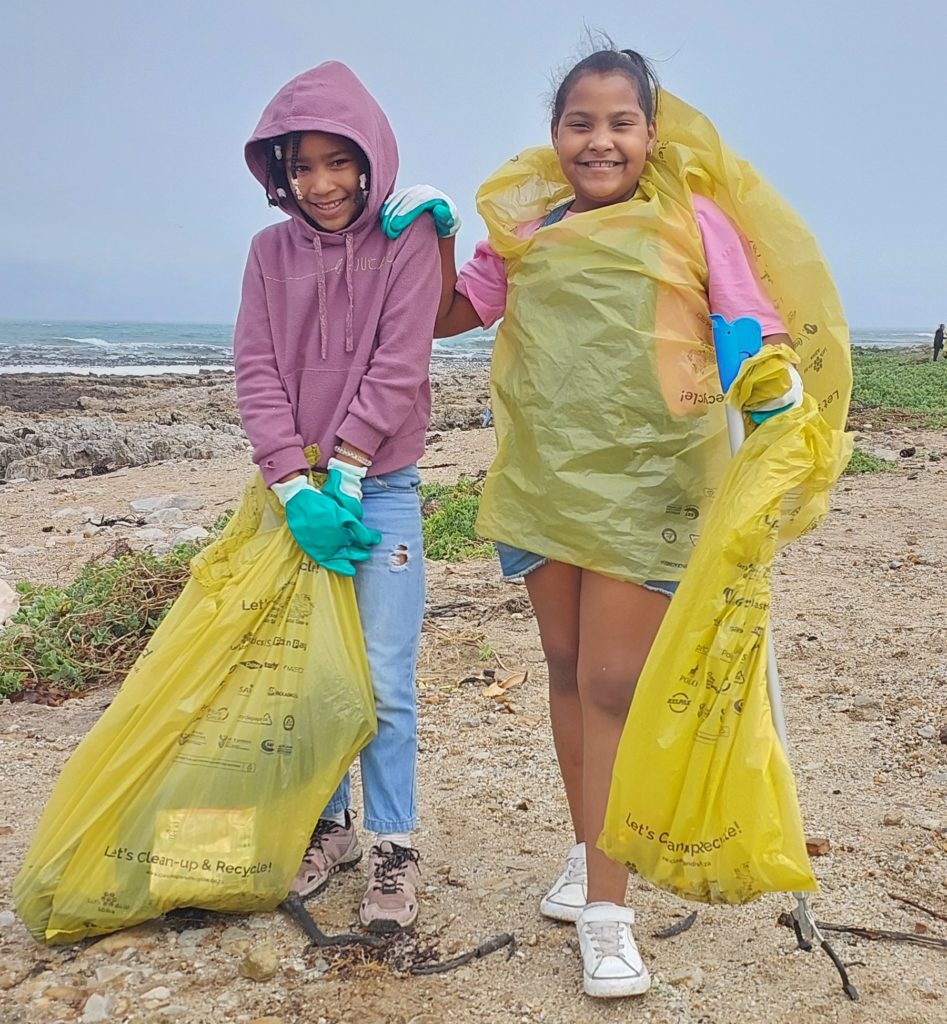
Start taking responsibility from a young age
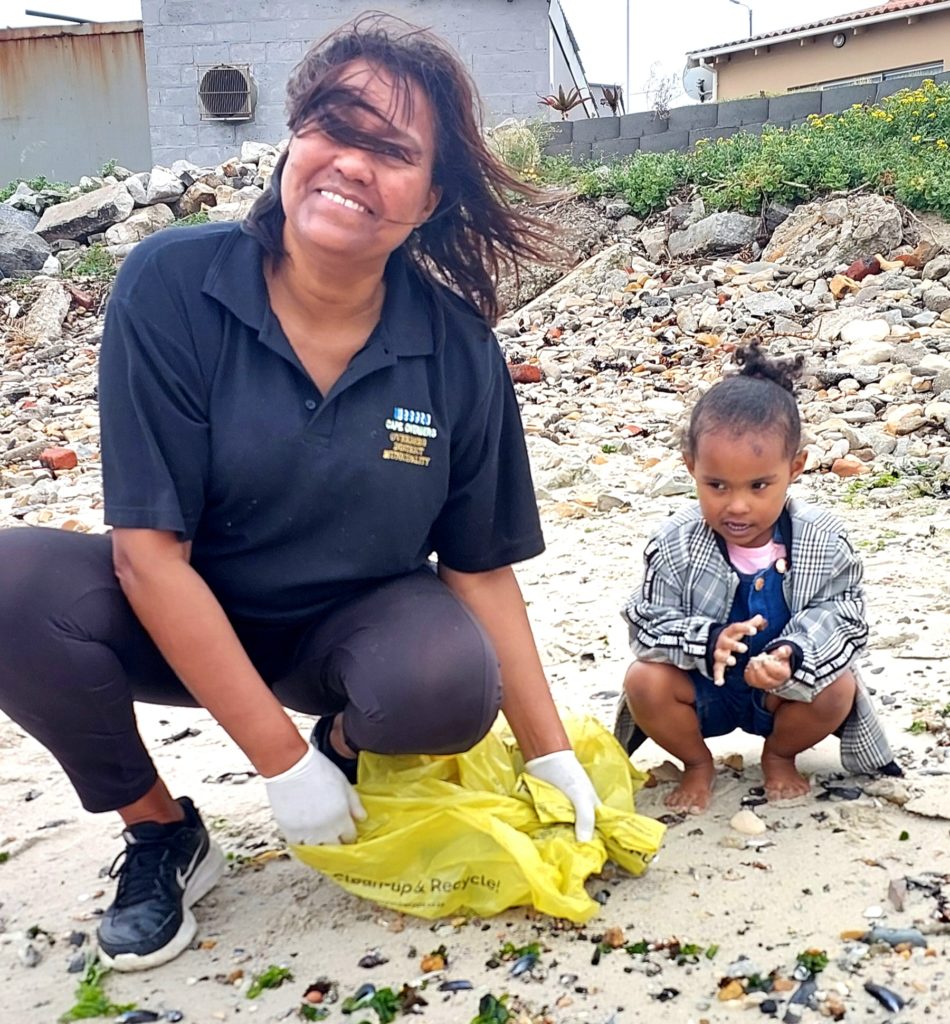
Gina from WESGRO Cape Overberg District Municipality joined with her family
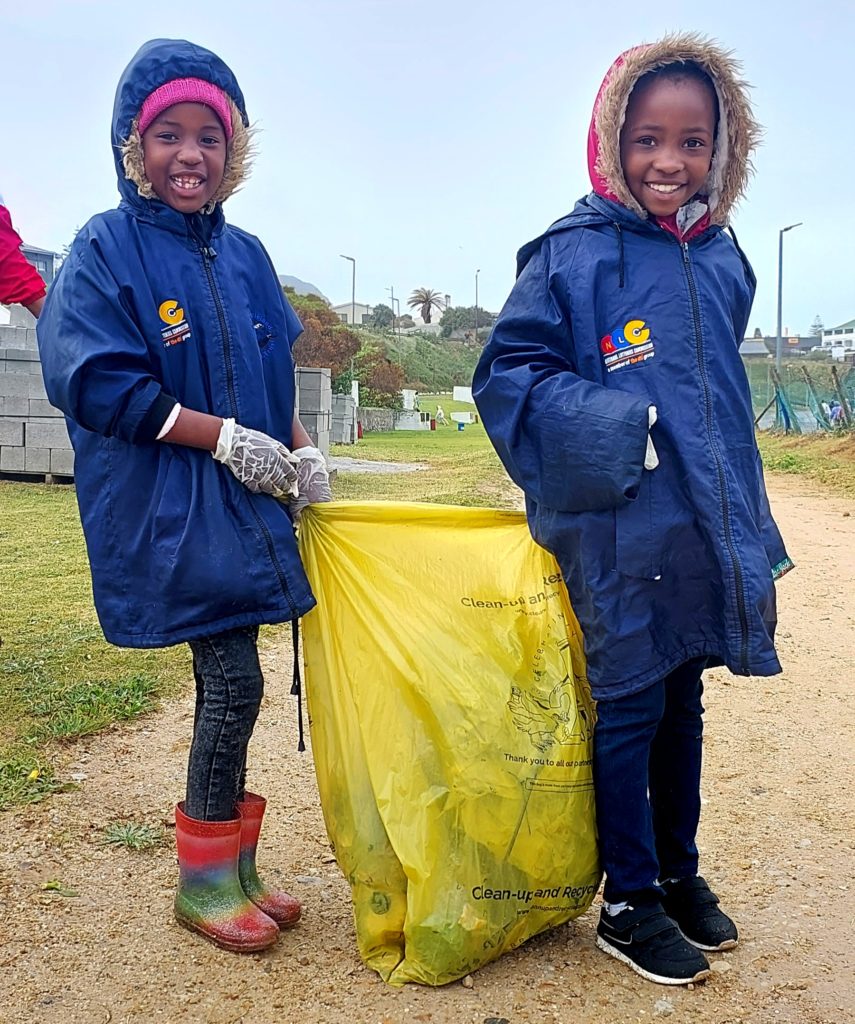
DEEP BLUE AMBASSADORS doing it for the love of the environment
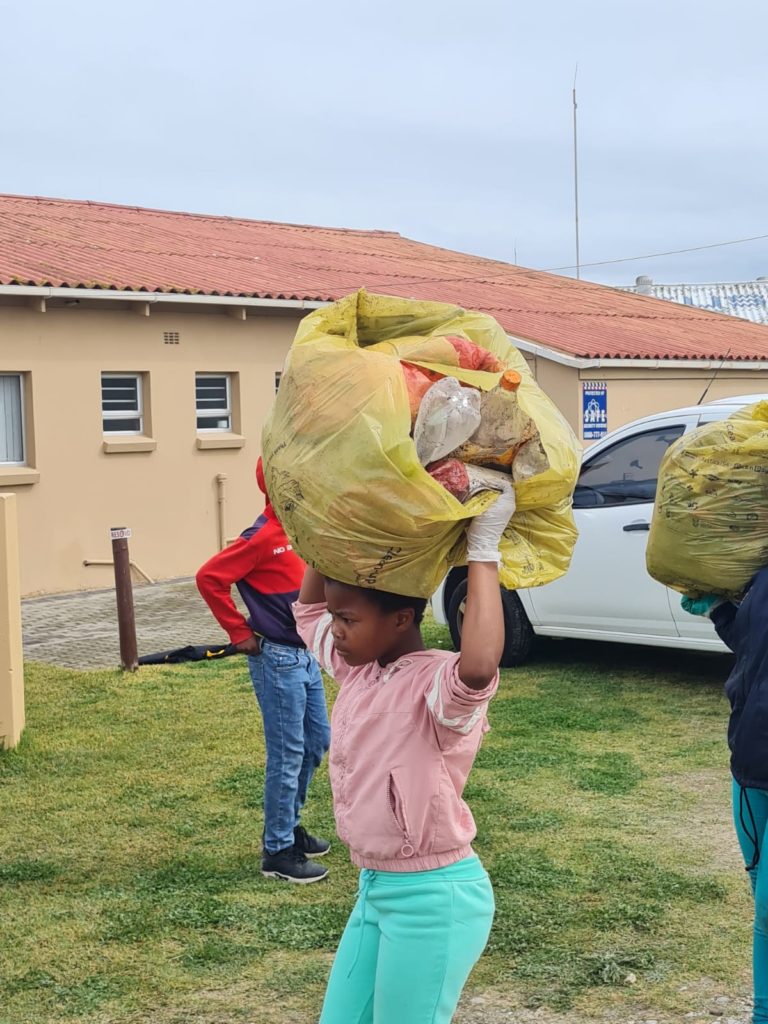
This is how we do the clean up in Africa
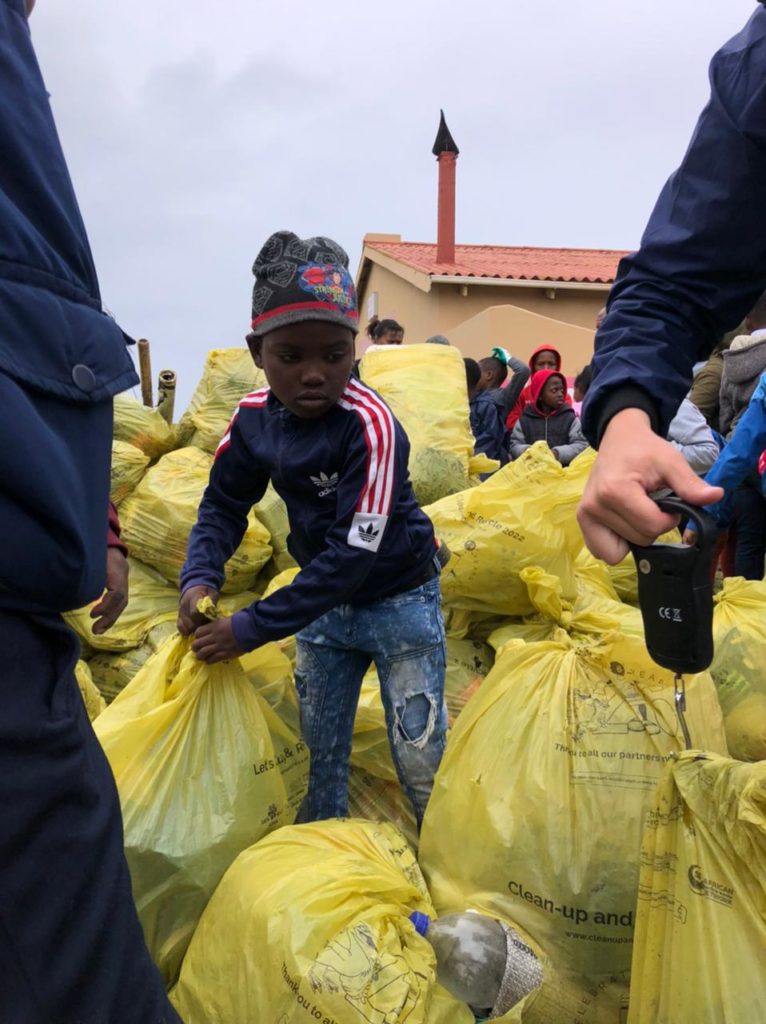
Weigh every single bit of litter
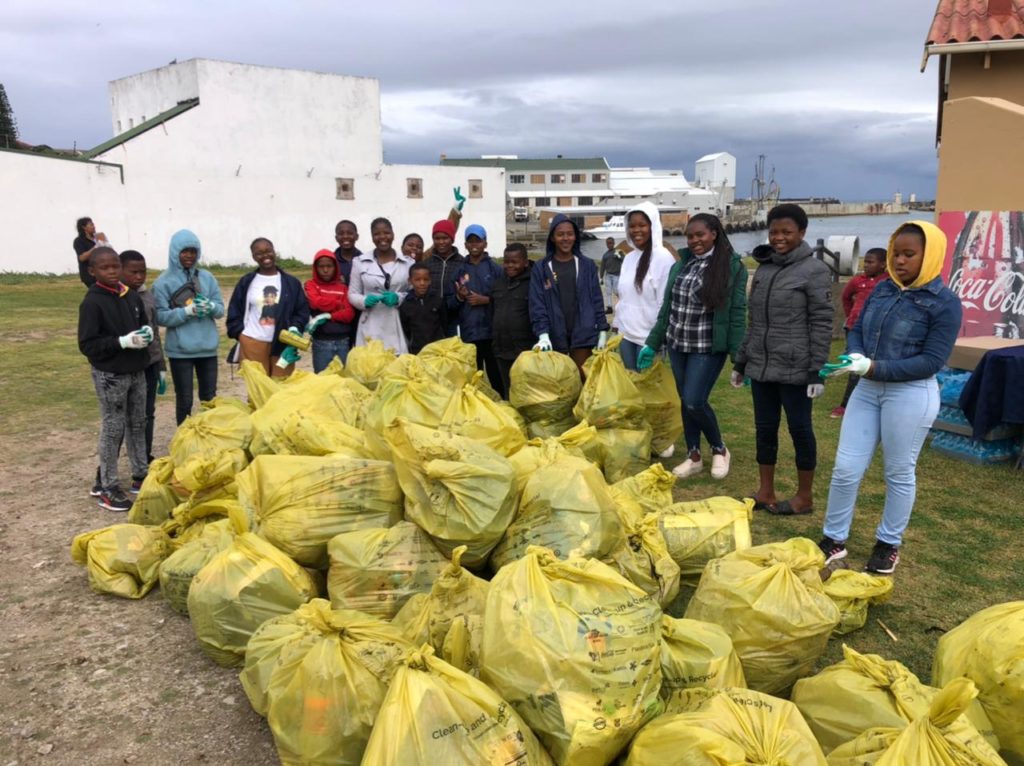
Total of 148 bags with some large items weighing 766.30 kgs. Thanks to everyone who joined us today

